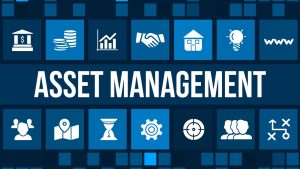To end up with an ERP system that fails to deliver your expected benefits and results is scary.
According to Gartner, 75% of the ERP projects fail. Yet, you don’t have to end up like that. Which is why our ERP implementation experts at Tigernix share key drivers of ERP implementation to help you make your ERP project a success.

Time
More often than not, we’ve seen that companies set unrealistic timelines and timeframes for their ERP implementation which dooms the process from day one. Many end up spending more time than expected as they set unrealistic goals for their ERP implementation. In fact, 79% ends up taking more time than expected in the implementation phase.
Most of the time reason for this is either not being aware of the complexity of an ERP implementation process or unclear definitions of the ERP requirement. Either way, the unrealistic timeframes for the implementation process can lead to bad decisions that will cost you significant losses and even may multiply the damage causing a ripple effect.
Getting an expert on ERP solutions on board the project to review your ERP implementation timeline will enable you to reassure that your expectations are realistic. Or you can compare yours against similar ERP implementation projects of similar size and scope to learn about what is realistic to expect.
It’s also important to include the non-technological aspect of the implementation process to the timeline such as change management, business process improvement, and user training.
Here having a clear and realistic project schedule is the key to minimize the risk involved. Creating milestones clearly for each step of the process can be very helpful here, so each team can develop plans around.
Your team selection is another important factor that will help you keep up with the timeline of the project better. An effective team should consist of members from main departments and should include employees and management alike. Here the full commitment of all the team members is essential to actively involved in the project effectively, so there is no room for drag and delays. Assigning a project manager with a good understanding of the project is also crucial for the success of the implementation process.
Cost
Did you know 64% of organizations exceed their budget during ERP implementation?
Well, the number one reason we found out to cause this budgeting issue is due to the lack of well-defined requirement for their ERP implementation. It may be transparency in financial operations, improve organic expansion, supporting the acquisition or supporting common processes that you are trying to achieve in your organization, having core requirements lined up for your ERP project is going to help you tremendously to stay within your budget.
For an example, if your goal is to improve your customer satisfaction, yet what your system focuses more on is streamlining your back office operations, you will get diluted results.
If you have clearly defined requirements for your ERP project it will help you plan the modules needed and database management, infrastructure, and development costs in advance correctly. So you will not end up with surprising changes in the budget due to newly found requirements.
We recommend you to start with clear goals for your ERP system from the very beginning even before the implementation phase, so you can make the right decision with your ERP software selection process and make sure you are paying only for the absolutely necessary features that will help you achieve your goals.
Customization is another area managers take less seriously. Most organizations try to stick to minimum customizations as possible even though they have higher expectations that the standard system cannot deliver. Here what they don’t realize is that they are pushing back the inevitable. Customizations that start in the middle of the implementation process will cost you more and even cause delays. Thus our recommendation is to keep the customizations align with the ERP implementation lifecycle.
Effective business process management and process improvement are two of the biggest ERP implementation risks often organization come across. Many think the old business process will fit the new ERP system but this is hard can happen. Even though companies find it’s hard to change the old existing processes, you need to understand that customizations to make your new ERP to fit your existing business process comes with a hefty price tag.
Training is another important part of the ERP implementation process. Thus, training cost is going to add to your budget as well as ERP consultation costs if you need an independent third party to help with the ERP selection and the implementation process.
Risk
Poor project management is another risk that can affect your ERP implementation process significantly. Here anything less than awesome in the scale for project management is a risk. Defining the project governance and structure clearly are very important for such a project. Also, organizations should define clear roles and responsibilities for each role from the project manager, the executive committee to third party roles. It’s also critical to assess and control project risks while keeping processes in place to get the full commitment of each member to the project and senior management’s full support.
ERP implementation hugely involved complex tech. Meaning there are so many ways things can go wrong if the organizations don’t know what they are doing.
Poor technology planning is a huge risk when it comes to ERP implementation. Technology planning for the new infrastructure is the prominent factor that enables you to get the best out of your system. Here the technological newness (new hardware and software requirements), size of the application like project scope and number of users and complexity of the application might go unnoticed until the very end which will affect the performance.
In addition to that, data conversion should be done carefully to minimize the risk of data loss. Here our advice is to thoroughly and proactively assess and test the data conversion programs to keep the conversion as smoother as possible.
Lack of change management is another risk that can hold your ERP implementation success from a certain degree. Not every employee will accept the new system as a new upgrade especially when they are used to one system for 10 years. It’s important that management keeps in mind that usually, the common belief is that ‘if it isn’t broke, no need to fix it’, so not every employee will be excited about the new system. Thus taking time for change management with organized processes and programs is essential.
Conclusion
ERP implementation is complex and can consume more than 12 months to finish. Although the starting point of a successful ERP project is selecting the right software these tips will help you keep you on track throughout your process leading toward ERP success.






